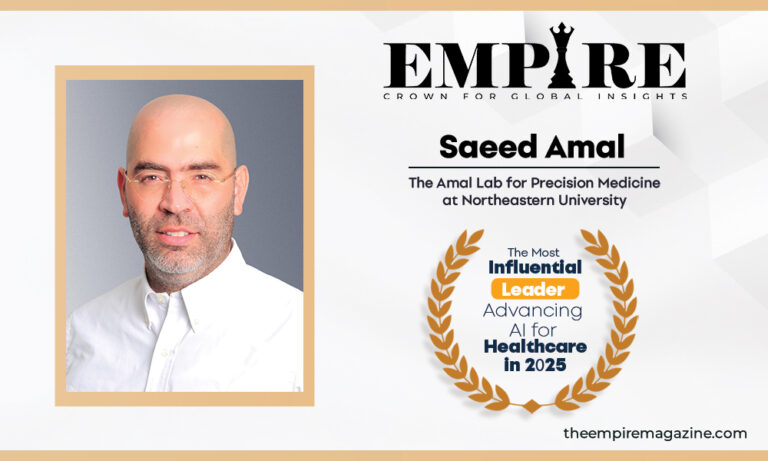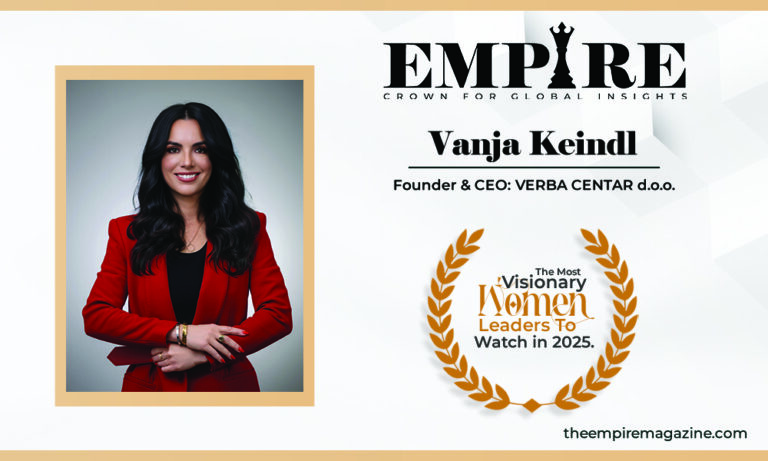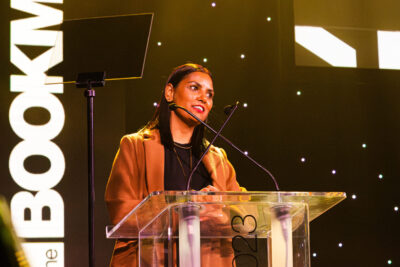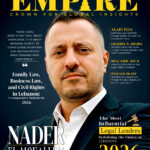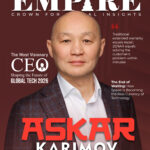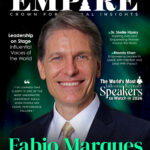Richard Larson: Turning Curiosity into a Career of Purpose, Progress, and Problem-Solving
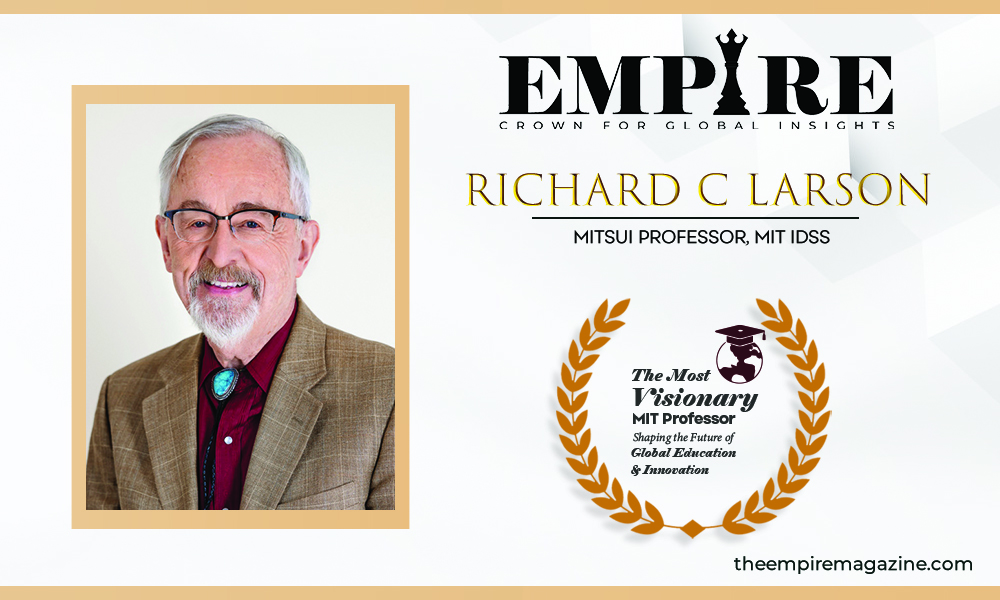
Some of the most transformative ideas don’t come from staying in your lane; they come from veering off course. Progress often lives at the messy intersections, where disciplines collide, and conventional paths get reimagined. That’s where Richard C. Larson, Mitsui Professor at Massachusetts Institute of Technology (MIT) IDSS, thrives.
Known for his restless intellect and “discipline itchiness,” Richard has spent his career dissolving academic silos and building unlikely bridges between fields. At MIT, he’s worn more departmental hats than most wear in a lifetime, all while keeping one goal at the center: making complex ideas useful to society. Whether in data systems, urban crime, or decision-making models, Richard has never settled for doing what’s expected, only what’s impactful.
A Journey Beyond Academic Silos
Richard first discovered his passion for physics while still in high school. What drew him in was its elegant simplicity; just a handful of broad, logical principles could explain so much of the natural world. It stood in stark contrast to biology, which, in his eyes, seemed to demand the memorization of an endless list of facts about plants and animals.
True to his libertarian-leaning nature, Richard never imagined himself following the traditional physicist’s path, which often calls for a lifelong commitment to research, teaching, and academic advising. Instead, he’s always been drawn to crossing boundaries, figuratively and literally. He saw academic disciplines as silos, and his professional ambition was to build bridges between them.
That “discipline itchiness,” as he puts it, shaped his journey at MIT, where he’s held affiliations with five different academic departments over time. He began in Electrical Engineering and eventually found a home in something quite different: MIT’s Institute for Data, Systems, and Society (IDSS), an interdisciplinary department designed to connect rather than divide.
His story with MIT began much earlier, though. At 18, Richard was a student at Needham High School in Massachusetts, a scenic campus perched on a hill, offering not just a beautiful view but a deeply enriching learning environment. When he received his acceptance letter to MIT in his own backyard, handed to him by his mother, he couldn’t believe it. “This must be a mistake,” he said. “I’m sure I’ll get the correction in tomorrow’s mail.”
But the acceptance was very real. Years later, someone from MIT’s Admissions Office told him that he wasn’t alone, and around a third of accepted students reportedly felt the same disbelief. It reminded him of a classic Groucho Marx line: “I’d never respect a club that would have me as a member.”
Shaping Thought Through Lived Experience
Throughout his distinguished career, Richard has experienced a series of pivotal moments that not only shaped his professional mission but also deeply influenced his values and academic philosophy.
One early milestone came in high school when he achieved a perfect score on the SAT Advanced Physics test, an achievement he believes played a key role in his acceptance to MIT. This formative academic triumph planted the seeds for a lifelong pursuit of excellence.
While at MIT, Richard joined the Phi Beta Epsilon Fraternity (PBE), a local brotherhood where traditions like wearing jackets and ties to class were upheld. It wasn’t just about appearances; it reflected a deep respect for the institution, its professors, and the culture of learning. These early experiences instilled in him a lasting appreciation for discipline and community.
During his first year of graduate school, Richard lived off campus and became indirectly involved in the case of Grand Larceny. Rather than view it as an isolated event, he saw it as an entry point into a broader societal issue: urban crime. This led him to explore urban policing more deeply, a journey supported by his advisor, Professor Alvin W. Drake, who arranged for him to ride along in Boston police patrol cars. These immersive experiences sparked a lasting interest in criminal justice systems and their underlying operational challenges.
Richard’s growing expertise culminated in his selection as the youngest member of the Science and Technology Task Force of the President’s Crime Commission under the Institute for Defense Analyses in Arlington, Virginia. At the time, he stood out as the only operations research specialist with hands-on knowledge of urban law enforcement.
This trajectory led him to write his PhD thesis on urban policing, which evolved into the book Urban Police Patrol Analysis, published by MIT Press in 1971. The following year, it earned the prestigious Lanchester Prize from the Operations Research Society of America for the best publication in the field.
Soon after, Professor Drake invited Richard to join the MIT faculty as an assistant professor. His academic career flourished from there, earning tenure, gaining recognition, and ultimately becoming affectionately known among peers as “an MIT lifer.” Over the years, he moved through five different academic departments, embracing interdisciplinary work and mentoring countless students.
While he acknowledges that many more meaningful events occurred, often in collaboration with his graduate students, Richard believes each passing year brought new insights and strengthened his belief in MIT as a unique, welcoming meritocracy. For him, it wasn’t just a career; it was a calling.
A Lesson Etched in Chalk Dust
For Richard, what seemed like a small classroom moment turned out to be a pivotal life lesson. While serving as a graduate teaching assistant at MIT, he was leading a lecture on applied probability to a group of about 60 students. As he wrote an equation on the blackboard, a student raised his hand with a thoughtful challenge: could Richard explain the concept more intuitively?
Caught off guard, he realized he couldn’t. He hadn’t studied that particular point deeply enough to teach it from its foundations. At that moment, standing before a lecture hall, Richard felt a wave of humiliation that would stay with him for years.
But rather than letting the experience define him, he chose to let it be a primary learning experience. From that day on, he made a quiet, enduring promise to himself: never again present material without a deep, intuitive grasp of it. Whether speaking to students, peers, or the public, Richard committed to mastering the substance before sharing it.
It became a personal standard built on humility, a reminder that no one is above mistakes and that the most valuable lessons often come from confronting them head-on.
Carving Paths in Untrodden Terrain
When asked for advice, Richard always returns to a familiar refrain: “Follow your intellectual passions.”
He encourages others to break away from conventional paths in both research and teaching. In his view, true progress is rarely made by those who simply follow the crowd. It’s the pathfinders, the ones who are willing to take intellectual risks who stand the best chance of making meaningful discoveries. While there’s no guaranteed reward at the end of these unconventional journeys, Richard believes it’s precisely this risk-taking that propels both personal growth and professional advancement.
When reflecting on the kind of advice that has stuck with him over the years, whether from mentors or personal experience, he highlights one essential principle: Feed your curiosity.
Richard urges others to remain endlessly curious, to ask questions not just within their fields but in all corners of life. For him, curiosity keeps the world vibrant and engaging, and it often opens doors to unexpected insights, some small, others truly transformative.
Born with a Mind That Roamed
From a very young age, Richard’s natural curiosity stretched well beyond the usual boundaries. He wasn’t one to accept a simple “No.” It was clear from the start that Richard wasn’t content with surface-level answers or baby talk.
He’s always had a mind that asks questions relentlessly while awake or even asleep. His senses seem constantly tuned to seek explanations. In fact, he once solved a complex research problem in his sleep, waking at 3:00 AM with a sudden realization. Without hesitation, he jotted down the breakthrough, an elegant solution related to his own invention, the Hypercube Queueing Model, and its convergence behavior in solving steady-state equations. That moment, both surreal and satisfying, reflects how deeply his mind is wired for discovery.
Milestones That Shaped a Legacy
Richard’s professional journey has been punctuated by some of the most prestigious honors in engineering and operations research. Among them, his election to the National Academy of Engineering remains one of the highest distinctions, an acknowledgment that stands at the pinnacle of professional recognition in his field.
His earliest major recognition came with his first book, Urban Police Patrol Analysis, published by MIT Press in 1971. The book earned him the Lanchester Prize from the Operations Research Society of America (ORSA), marking what he considers his first true honor. It was a moment that set the tone for the decades of contributions that followed.
Over the years, his work has continued to receive widespread acknowledgment. He has been honored with the INFORMS President’s Award and the Kimball Medal, both of which celebrate influential contributions and leadership within the analytics and operations research communities.
Most recently, Richard received the Albert Nelson Marquis Lifetime Achievement Award, granted by Who’s Who in America. The award recognizes individuals who have demonstrated both enduring excellence and career longevity. In a particularly surreal and proud moment, Who’s Who celebrated the honor by projecting his image 20 stories high in New York’s Times Square.
The Heart Behind Systemic Change
Richard knows firsthand that implementing real change is rarely as straightforward as it seems at the outset. He’s learned through experience that it’s not just about the data or the models; it’s about people. The key, he says, is securing buy-in from those involved, particularly agency personnel. Without their engagement and trust, even the most brilliant strategy can falter.
Getting that buy-in, however, takes time, thoughtful planning, and plenty of patience. Richard emphasizes the importance of sitting down with people, clearly communicating goals, and answering their questions. Often, these conversations reveal insights that ultimately lead to better solutions than the original plan.
Championing Clarity in a Complex World
“Be true to yourself. Avoid shortcuts. Be patient, and always, always keep learning before making any real changes.”
These are the core principles that Richard has lived by, and they continue to guide his journey, even in retirement.
While many are “looking ahead” to 2025, Richard sees it differently; he’s already living it. Having retired from his longstanding role at MIT, he’s now channeling his energy into something deeply meaningful: bringing the power of Model Thinking to the wider public. This idea, central to his 2023 book MODEL THINKING For Everyday Life – How to Make Smarter Decisions (published by INFORMS), is about helping everyday people apply structured thinking to improve decision-making in real-world situations. The book is available on Amazon and has served as a platform for his outreach.
Richard has discussed the book and its message across multiple platforms, from television and radio to public forums and social media, including the platform formerly known as Twitter.
Support for his mission has also come in unexpected and exciting ways. Marquis Who’s Who in America, an organization that has long recognized Richard’s work, has amplified his efforts without charging him a dime. After featuring a towering 20-story image of him in New York’s Times Square, they took things even further by producing a professional “Video Brochure” titled MY STORY, MY WORDS.
A television crew visited his home in Lexington, Massachusetts, to film an in-depth interview, conducted right in the sunroom of his living room, centered around the importance and impact of Model Thinking. That interview is now accessible as part of the video brochure collection, offering a personal and compelling look into his journey and philosophy.
A Lifelong Commitment to Future Thinkers
Richard has always believed in the power of leading by example. It’s not about big declarations or chasing recognition; it’s about consistently showing up, sharing knowledge, and making meaningful contributions over time. Whether through his words, his work, or the students he’s mentored, he hopes the impact speaks for itself. One tangible way Richard has chosen to give back is by personally funding an endowed chair at MIT’s Institute for Data, Systems, and Society (IDSS). The “Larson Chair,” named in his honor, is more than just a title; it’s an investment in the kind of intellectual exploration that shapes a better future. He envisions future holders of the chair embarking on bold research journeys that benefit society and reflect the values he holds dear.
Follow Richard Larson on LinkedIn


